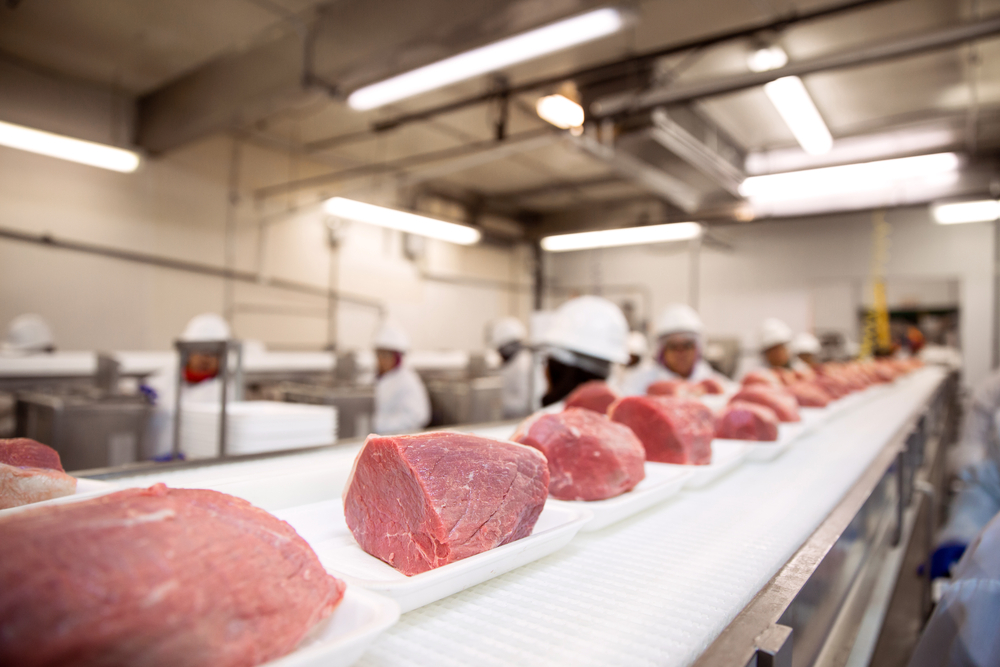In the early 17th century, Calvinist philosopher Johannes Althusius put a distinctly Christian spin on earlier concepts of political subsidiarity. Althusius visualized civil bodies as not parts of a whole, but critical and complete entities in themselves. Each body, or association, has a vocation to which it is divinely called, and each is meant to work together with other associations in symbiotic relationships.
Two hundred years later, Abraham Kuyper used the term “sphere sovereignty” to refer to the independence of each of these associations, and to the “limited and specific role” to which government has been assigned by God. To Kuyper, as well as Althusius, the role of the state was to protect the independence of each sphere, and to secure the contracts made between them.
Why does this distinction matter? Well, it strikes at the core of American politics.
Specifically, we see a vivid lack of subsidiarity in the meat processing industry, where mandates from the very top of government have suffocated ranchers and processors for decades.
In the name of “public safety” and “maintaining consumer confidence,” the government has created an artificial oligopoly in this industry, thereby creating intrinsic discrimination against small business. Ever since Congress passed the Wholesome Meat Act of 1967, under the Lyndon Johnson administration, all meat processing has been overseen by federal USDA guidelines. Certified inspectors must oversee every animal slaughtered, every slice of meat processed, and the finished cuts of meat themselves. Through the stringent HACCP regulations instituted in 1997, every meat processor must also create expensive safety plans for every single cut of meat.
The cost of these plans has been estimated at $13,540 per plan for small processors. Moreover, the original cost of bringing buildings up to new sanitation codes was a shocking $266,800 apiece. The safety issues of note are primarily those suffered by massive meat processors, while the price of regulatory compliance has been larger for the small plants.
The economic results of these costs has been an uppercut to rural communities, small meat processors, and consumers. Rural families surrounded by cows and pigs can’t purchase a pound of ground beef from their farming neighbor unless it was slaughtered at an officially inspected facility, which, as a side effect of regulation, often only accept bulk orders of animals from large farmers. Small meat processors have been forced out of business and the market has consolidated as a result, to the point where only four processing companies control 80% of the market.
Put simply, subsidiarity has been crushed in this industry, and it has had economy-wide ramifications.
We should remember that our nation is a constitutional republic, not a democracy, and that in itself is a check on majority rule laid by our founders. Further, a key political principle of subsidiarity is built into the U.S. Constitution in the Tenth Amendment, which guarantees a broad swath of rights to states as protections from federal tyranny.
In Federalist Paper 45, James Madison elaborated on the need for this amendment. “The powers reserved to the several States,” he writes, “will extend to all the objects which, in the ordinary course of affairs, concern the lives, liberties, and properties of the people, and the internal order, improvement, and prosperity of the State.”
Moreover, this ideal of a limited federal government was not some short-term concession to arrogant state delegations in the 1780s. Neither was the federal government given all authority over health issues, such as meat-borne pathogens. The reservation of powers to the states was a direct philosophical descendant of Christian subsidiarity, and it was included in the Constitution to ensure efficient and just politics. One recent paper outlines four main advantages of allowing most lawmaking to occur at the state level:
- Regional variation in preferences
- Competition for taxpayers and businesses
- Experimentation to develop the best set of rules
- Lower monitoring costs
Thankfully, when it comes to the meat processing industry, all political hope is not lost. A bipartisan coalition has emerged, spearheaded by Congressmen and Senators from Kentucky and Maine that have worked together to sponsor the Processing Revival and Intrastate Meat Exemption (PRIME) Act in each of the last four Congresses. The PRIME Act would return jurisdiction over meat destined for in-state sale to the state itself.
All four benefits of state governance listed above would come to pass under the PRIME Act. States could develop the best codes for their regions, tailored to each level of processor size. Competition would certainly increase, as small ranchers and processors alike would get more opportunity to sell their goods. Instead of a stagnant, national set of rules, states could foster creativity and innovation in policy to figure out the best balance between consumer safety and economic freedom. With more innovative rules would surely come a lessening of burdensome regulations, allowing cheaper costs across the board for meat.
The PRIME Act might not be a panacea, but it would be a major boost of freedom for our political system, the economies of rural America, and every consumer who cares about their meat.

